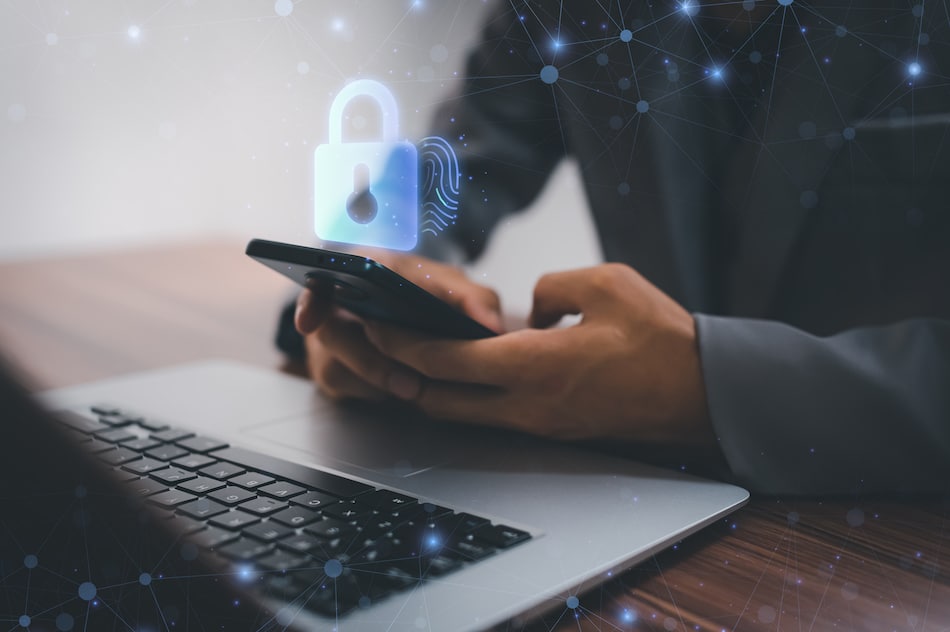Key Takeaways
Consumer Ecommerce is booming. With the vast array of web developers, payment processors and digital currencies, it has never been easier to get an online business off the ground. The US market alone is estimated at $409 billion for 2017. By 2022, it’s expected to make up to as much 17% of all retail sales nationwide.
Risks
Whether your startup is a B2B, B2C, or a retail Ecommerce company, there are always inherent risks looming because the business model. Here’s a look at some of those risks and how startups can mitigate them with e-commerce commercial insurance.
1. Physical Damage
Bodily injury and property damage: concerns for almost any business. As employees interact with customers, vendors, and bystanders, there’s always a potential for physical damage caused by the company. A salesperson who spills coffee on someone or damages expensive gear while visiting a vendor or client. An office visitor who slips and falls on the wet kitchen floor. An employee who accidentally starts a fire or otherwise damages rented office space…the list goes on.
A general liability insurance policy covers claims for physical damage like these slips and trips. But it extends beyond basic “slip and fall” scenarios to include one key coverage as well: products liability.
Products liability insurance protects the company if its product is accused of causing an injury. For instance an infant choking on a small plastic piece, or a cosmetic causing a skin condition or staining the user’s skin or clothes, etc.
Any Ecommerce company that sells a tangible product is at risk for these suits. Though the manufacturer will likely bear the much of the blame for a defective product, the distributor and/or retailer will almost always be named in the lawsuit. Everyone in the supply chain could be brought into the suit. This means legal bills even if the E-commerce platform/app is completely innocent. A good general liability insurance policy will cover these costs.
Key takeaway:
- GL insurance protects Ecommerce companies from physical damage.
- Products liability insurance protects Ecommerce companies from defective product lawsuits – very important!
2. Data Breach or Loss
Most thought leaders in the Ecommerce space will agree that customer engagement leads to a strong brand and loyal customer base. Usually, engagement is driven by a personalized experience on the site and across mediums and devices to enhance recall and build a relationship with the customer.
To build this personal relationship, Ecommerce companies need personal information about their customers…and the more the better. It’s extremely hard to find an Ecommerce company these days that doesn’t require an account creation or strongly encourage the customer to divulge more about their tastes. On-site or in-app behavior is tracked down to the last click!
All of this personal data collection creates a big risk for Ecommerce companies in the form of a data breach or loss incident. Data breach claims can be incredibly expensive and costs come from multiple angles, including lawsuits, data restoration, forensics, mandatory breach notification procedures, PCI fines, and more. A good cyber liability insurance policy will cover all of these costs and more.
Key takeaway:
- With the amount of sensitive data at stake, cyber liability insurance or ecommerce insurance for E-commerce companies = no-brainer.
3. Product / Service Failures
Product Service failures can come in a bunch of different flavors:
-
- A glitch in the checkout procedure confirms orders and processes orders but never sends those order for fulfillments. Site-wide orders are backlogged for weeks and client demand their money back.
- Distributors and manufacturers of the site sue for lost profits when the site goes down for an unexpected amount of time.
- The company fails to live up to its terms of service. Customers band together and bring an action against the company for fraud or violation of consumer protection laws.
- Advertisers that have purchased space on the site/app demand money back when the ads were not served as contracted for (or not served at all when the site crashes)
Note that these product/service failures can come from both the operations of the company and the tech that drives the platform. Either way, comprehensive technology errors & omissions (E&O) policy exists to protect companies from financials losses like these examples.
It’s important to note that even if the failure is caused by a 3rd party service provider (Paypal/Stripe for payment processing, AWS hosting, etc.), the customer will always look to the company for recovery first. That’s why it’s always important to be covered.
Key takeaway:
- Technology E&O insurance helps protect Ecommerce companies from financial losses based on failure, technically or operationally, to uphold their end of the bargain.
4. Corporate Governance
Ecommerce companies are particularly well funded compared to other types of VC-backed tech companies. With institutional investors comes a term sheet, and a directors & officers (D&O) insurance requirement almost inevitably appears on that term sheet.
D&O insurance protects the company and its leadership when sued in their role as a directors or officers of the company. VC’s want D&O in place so they can be confident in taking a seat on the company’s board. They also want to know that, if there is a legal dispute between the VC and the leadership, an insurance policy will help protect their investment.
The coverage is particularly important as companies raise more money and expand the cap table. New investors can claim management made misrepresentations that influenced their decision to invest. And as ownership is further diluted, shareholder complaints and derivative demand suits can follow.
Key takeaway:
- Ecommerce companies with funding will almost always need D&O insurance to close a round. Even if it’s not required, it’s probably still a good idea.
This list is by no means exhaustive, but those are the big ones to think about. If you’re interested further, reach out to us any time, explore the blog for more helpful information, and get the insurance ball rolling for your Ecommerce company.
Additionally, it’s important for Ecommerce companies to be aware of the potential need for a product recall. If a product is found to be defective or unsafe after it has been distributed, a recall can mitigate the risk of further harm and legal repercussions. Ensuring you have the proper insurance coverage in place can help manage the costs associated with a product recall, protecting your company’s reputation and financial stability.
[vc_btn title=”GET A QUOTE” style=”outline-custom” outline_custom_color=”#ee2524″ outline_custom_hover_background=”#ee2524″ outline_custom_hover_text=”#ffffff” shape=”square” size=”lg” align=”center” link=”url:https%3A%2F%2Fapp.foundershield.com/users/sign_up|||”]











